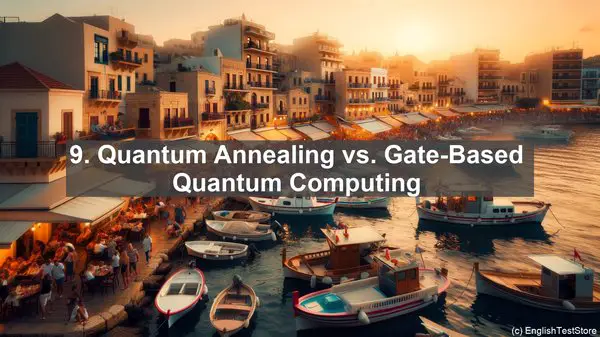Introduction
Quantum computing is an exciting field, but it can also be confusing. Today, we’ll be discussing the top 10 words that are commonly confused in this domain. Let’s dive in!

1. Qubit vs. Classical Bit
The fundamental unit of classical computing is the bit, which can be either 0 or 1. In quantum computing, we have qubits, which can be in a superposition of both 0 and 1. This allows for the potential of parallel processing and exponential speedup.
2. Quantum Supremacy vs. Quantum Advantage
Quantum supremacy refers to the point where a quantum computer can solve a problem that is practically infeasible for classical computers. Quantum advantage, on the other hand, means that a quantum computer can solve a problem faster than classical computers, even if it’s not infeasible for them.
3. Entanglement vs. Superposition
Entanglement is a phenomenon where two or more qubits become correlated in such a way that the state of one qubit cannot be described independently of the others. Superposition, on the other hand, refers to the ability of a qubit to exist in multiple states simultaneously.
4. Quantum Gate vs. Quantum Circuit
A quantum gate is an operation that manipulates the state of one or more qubits. A quantum circuit, on the other hand, is a sequence of these gates, representing the flow of information and computations in a quantum algorithm.
5. Decoherence vs. Error Correction
Decoherence is the loss of quantum information due to interactions with the environment. Error correction, on the other hand, is a set of techniques to protect quantum information from errors caused by decoherence and other factors.
6. Quantum Teleportation vs. Quantum Communication
Quantum teleportation is a process where the state of a qubit is transferred from one location to another, without physically moving the qubit itself. Quantum communication, on the other hand, involves the transmission of quantum information between parties.
7. No-Cloning Theorem vs. No-Deleting Theorem
The no-cloning theorem states that it’s impossible to create an identical copy of an arbitrary unknown quantum state. The no-deleting theorem, on the other hand, states that it’s impossible to delete an arbitrary unknown quantum state.
8. Quantum Algorithm vs. Classical Algorithm
A quantum algorithm is a set of instructions designed to be executed on a quantum computer, taking advantage of its unique properties. A classical algorithm, on the other hand, is designed to be executed on a classical computer.

9. Quantum Annealing vs. Gate-Based Quantum Computing
Quantum annealing is a specific approach to quantum computing that focuses on finding the global minimum of a given problem. Gate-based quantum computing, on the other hand, uses quantum gates to perform computations.
10. Quantum Volume vs. Quantum Speedup
Quantum volume is a metric that measures the overall computational capability of a quantum computer, taking into account factors like error rates and connectivity. Quantum speedup, on the other hand, refers to the ability of a quantum computer to solve a problem faster than classical computers.
